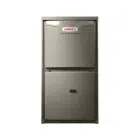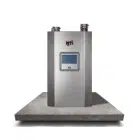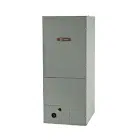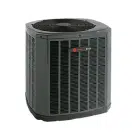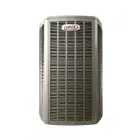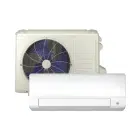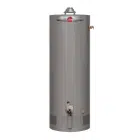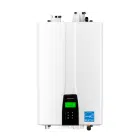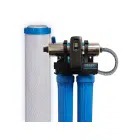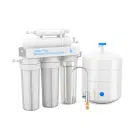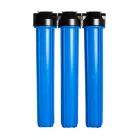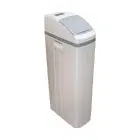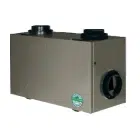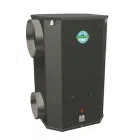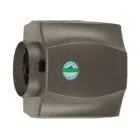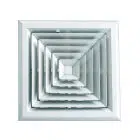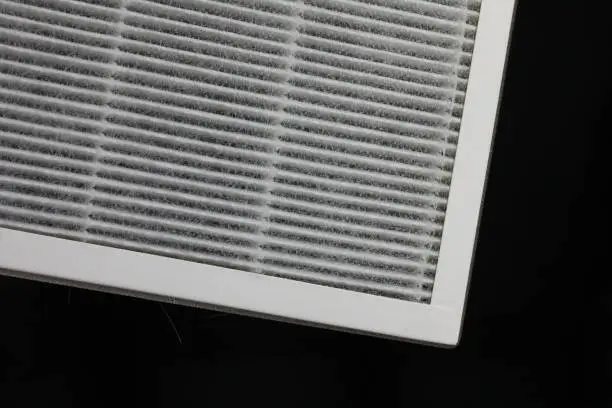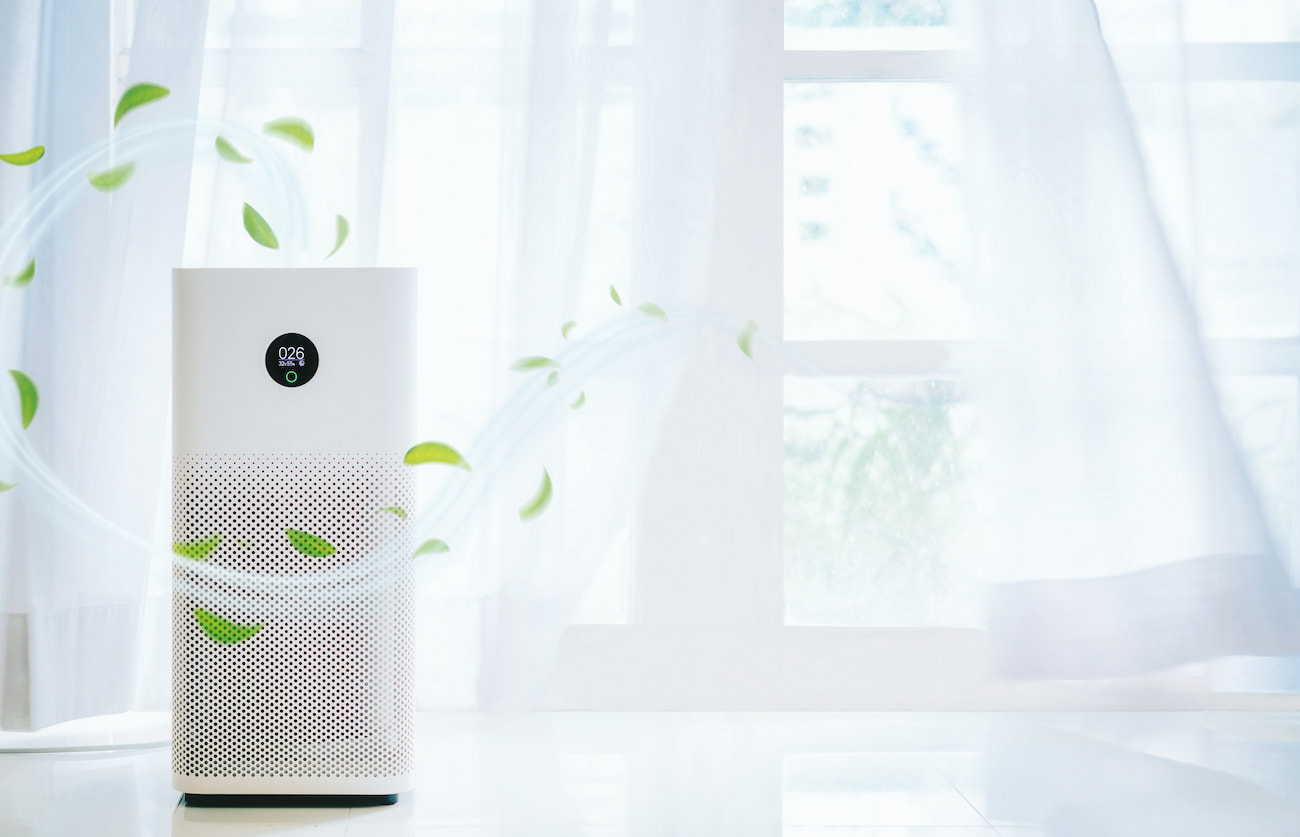
Table of Contents
- The Most Common Humidity Issues
- The Role of a Humidifier in Improving Your Home Comfort
- Health and Well-being with Humidifiers for Home
- How Humidifiers for Home Protect Your Living Environment?
- Energy Efficiency Benefits of Humidifiers
- Humidifiers and Green Living
- How to Choose the Right Humidifier for Your Home?
- Integrating a Humidifier into Your HVAC System
- Conclusion
Home is where the heart is, but it’s also where we face various challenges related to indoor comfort. If you’ve ever experienced dry skin, irritated eyes, or felt uncomfortable due to low humidity, you’re not alone. This is why we’ve decided to explore the transformative benefits of humidifiers to enhance your home’s comfort and well-being. We will also consider how you can integrate a humidifier into your existing HVAC system.
The Most Common Humidity Issues
Low indoor humidity is the root cause of many common discomforts. It can lead to dry, itchy skin, respiratory problems, and even an increased susceptibility to illness. This discomfort can affect your sleep quality, making it challenging to enjoy a restful night’s sleep. Additionally, low humidity can damage your home and its contents, causing issues with wood, electronics, paint, and wallpaper.
The Role of a Humidifier in Improving Your Home Comfort
Humidifiers are unsung heroes when it comes to achieving the perfect balance of indoor humidity. These devices are designed to do one thing: add moisture to the air in your home. They may come in various types, including evaporative, ultrasonic, and steam humidifiers, but their mission remains the same – to make your indoor environment more comfortable and healthier.
Here’s how humidifiers can improve indoor air quality and overall comfort:
- Maintaining Optimal Humidity Levels: The ideal indoor humidity level typically ranges between 30% and 50%. Humidifiers ensure that your home falls within this range, preventing the discomfort of both overly dry and overly moist air.
- Alleviating Dry Air Discomfort: When the air lacks moisture, it can lead to dry, itchy skin, scratchy throats, and irritated eyes. Humidifiers provide relief by infusing moisture into the air, combating these discomforts.
- Respiratory Health: Low humidity can worsen respiratory issues like allergies, asthma, and sinus congestion. Humidifiers help keep air passages moist, making it easier to breathe and reducing the risk of respiratory problems.
- Enhancing Sleep Quality: A comfortable sleep environment is crucial for a good night’s rest. Using a humidifier can reduce snoring, prevent a scratchy throat, and improve sleep quality, so you wake up feeling refreshed.
- Protecting Home Furnishings: Low humidity can have a detrimental effect on wooden furniture, causing it to crack or warp. It can also impact electronic equipment and damage paint and wallpaper. Humidifiers safeguard your home and its contents from these issues.
- Energy Efficiency: Humid air feels warmer, even at lower temperatures. By using a humidifier to maintain the right humidity level, you can turn down your thermostat and save on heating costs.
- Reducing Static Electricity: Those annoying shocks from static electricity can be a thing of the past with a humidifier. Adequate humidity levels reduce static electricity and enhance safety.
Now, let’s consider the benefits of humidifiers more deeply.
Health and Well-being with Humidifiers for Home

Dry, itchy skin, irritated eyes, and respiratory discomfort are common problems that many of us face, especially during the winter months when indoor heating systems often dry out the air. Fortunately, humidifiers offer a simple and effective solution to these issues, significantly improving your overall health and well-being.
Relief for Dry Skin
Low humidity levels can strip your skin of its natural moisture, leaving it dry, tight, and itchy. As the air becomes more humid through the use of a humidifier, your skin retains its natural moisture, making it soft and supple. This not only promotes comfort but also aids in maintaining healthy skin, reducing the likelihood of issues like eczema exacerbation or dry patches.
Soothing Irritated Eyes
When the air is dry, it can lead to eye irritation, especially if you already suffer from conditions like dry eye syndrome. Humidifiers help by adding moisture to the environment, which in turn helps keep your eyes hydrated and comfortable. This can be particularly beneficial for those who spend long hours in front of screens or in air-conditioned or heated spaces.
Respiratory Comfort
Low humidity can exacerbate respiratory problems, making it harder to breathe comfortably. Humidifiers are a valuable tool in relieving these issues. They add moisture to the air, helping to soothe the airways and reduce symptoms of allergies, asthma, and sinus congestion. The moist air can also help with better mucus flow, which is essential in clearing irritants from the respiratory tract.
How Humidifiers for Home Protect Your Living Environment?
Humidifiers play a critical role in protecting your home’s structural integrity and maintaining the aesthetic appeal of your living spaces.
In dry conditions, wood tends to shrink, crack, and warp. This can affect not only wooden furniture but also structural elements of your home, like hardwood floors, cabinetry, and molding. Humidifiers ensure that the wood in your home retains its moisture content, preventing these issues and prolonging the life of your investments. Additionally, electronic equipment can suffer in low-humidity environments, as static electricity can cause damage. Integrating a humidifier into your HVAC system or using standalone units helps reduce the risk of costly electronic failures.
Moreover, paint and wallpaper can deteriorate prematurely in a dry environment. Paint may peel, while wallpaper can become brittle and start to peel away from the walls. Humidifiers help preserve these decorative elements, maintaining the aesthetic appeal of your home.
Energy Efficiency Benefits of Humidifiers
We often think of energy efficiency in terms of appliances or insulation, but did you know that maintaining the right indoor humidity can also contribute significantly to lowering your energy bills?
During the colder months, maintaining a comfortable indoor temperature can be a costly affair. But did you know that humid air feels warmer at the same temperature? By using a humidifier to keep the air properly moisturized, you can turn down your thermostat a few degrees without sacrificing comfort. This leads to substantial energy savings over time.
Consider this scenario: Without a humidifier, you might feel chilly and decide to crank up the heat, resulting in higher energy consumption. However, when you introduce the right level of humidity, the air retains heat better, making you feel warmer even at a lower temperature setting. This simple adjustment can result in lower heating bills and reduce your overall energy consumption, contributing to a greener and more cost-effective home.
Check out more budget-saving tips in our blog via the link below.
Humidifiers and Green Living

Humidifiers aren’t just for human comfort; they also have an impact on the well-being of your indoor plants. If you’re a fan of houseplants, you’ll appreciate how these devices create an ideal environment for your leafy companions. Houseplants thrive in the humidity provided by humidifiers, with leaves that remain lush and vibrant. Additionally, when humidity levels are properly balanced, your plants are less susceptible to pests and diseases, making your green space healthier and more enjoyable.
How to Choose the Right Humidifier for Your Home?
There are different types of humidifiers, each with its own set of features and advantages. We understand that you may feel confused about what is the most suitable option for you. This is why we prepared a few pieces of professional advice to help you make an informed decision:
- Evaluate Room Size: Determine the square footage of the room you want to humidify. Humidifiers come in various sizes, so choose one that’s appropriately sized for the area. For larger spaces, consider whole-house humidifiers that can be integrated with your HVAC system.
- Type of Humidifier: There are several types of humidifiers, including evaporative, ultrasonic, and steam. Each has its advantages and limitations. Evaporative humidifiers are energy-efficient, ultrasonic models are nearly silent, and steam humidifiers provide quick moisture. Consider your preferences and requirements.
- Maintenance: All humidifiers require some level of maintenance. Regular cleaning is essential to prevent mold and bacteria growth. Steam humidifiers typically have less maintenance, while cool mist models may need more frequent cleaning. Choose one that fits your maintenance routine.
- Noise Level: If you’re sensitive to noise, consider an ultrasonic humidifier, which is generally quieter than evaporative models. Keep in mind that all humidifiers produce some noise, but it’s usually minimal.
- Built-In Humidistat: Opt for a model with a built-in humidistat, which allows you to set and maintain your desired humidity level automatically. This ensures optimal comfort without constant adjustments.
- Portability: If you plan to move your humidifier between rooms, choose a portable model with a convenient handle.
- Water Source: Some humidifiers draw water from a built-in reservoir, while others can be connected directly to a water source. Consider your preferences and ease of use.
- Brand and Warranty: Choose reputable brands with good customer reviews and warranties. Quality and reliability can vary, so invest in a reliable unit that ensures lasting performance.
Find your perfect humidifier on our website via the link below.
https://thehvacservice.ca/buy-humidifier/
If you’re unsure, don’t hesitate to seek guidance from HVAC professionals who can provide tailored recommendations based on your unique situation.
Integrating a Humidifier into Your HVAC System
You probably wonder whether it’s possible to integrate a humidifier into their existing HVAC system, particularly into their furnace. The answer is a resounding yes. In fact, integrating a humidifier into your HVAC system is an efficient way to maintain optimal humidity levels throughout your home.
Here’s how you can integrate a humidifier into different types of HVAC systems:
- Forced-Air Furnace: If you have a forced-air furnace, integrating a humidifier for furnace is a seamless process. The humidifier is installed within your ductwork, ensuring that moist air is distributed throughout your home every time the furnace operates.
- Heat Pump System: Heat pumps can also benefit from humidifier integration. The installation process is similar to that of a forced-air furnace, where the humidifier is connected to the ductwork for even humidity distribution.
- Radiant Heating System: While less common, radiant heating systems can still accommodate humidifier integration. In this case, the humidifier may be installed separately, providing moisture to the air that circulates naturally throughout your home.
- Ductless Mini-Split Systems: If you have a ductless mini-split system, you can still enjoy the benefits of a humidifier. A standalone humidifier can be strategically placed in the rooms where you want to improve humidity levels.
- Geothermal Systems: Geothermal systems work well with integrated humidifiers. Humidifiers can be attached to the air handling unit, ensuring that the conditioned air is properly moisturized before being distributed throughout your home.
Don’t forget to consult HVAC professionals who can provide tailored recommendations and expert installation, ensuring optimal comfort and well-being for your home.
Conclusion
The importance of a humidifier in enhancing home comfort cannot be overstated. From alleviating health issues to protecting your home, improving energy efficiency, and nurturing your indoor garden, humidifiers offer a comprehensive solution to create the ideal living environment.
At HVAC Service Solutions, we’re committed to providing you with comprehensive solutions to elevate your indoor comfort. Contact us today to learn how we can make your home the epitome of comfort and well-being.
Share
